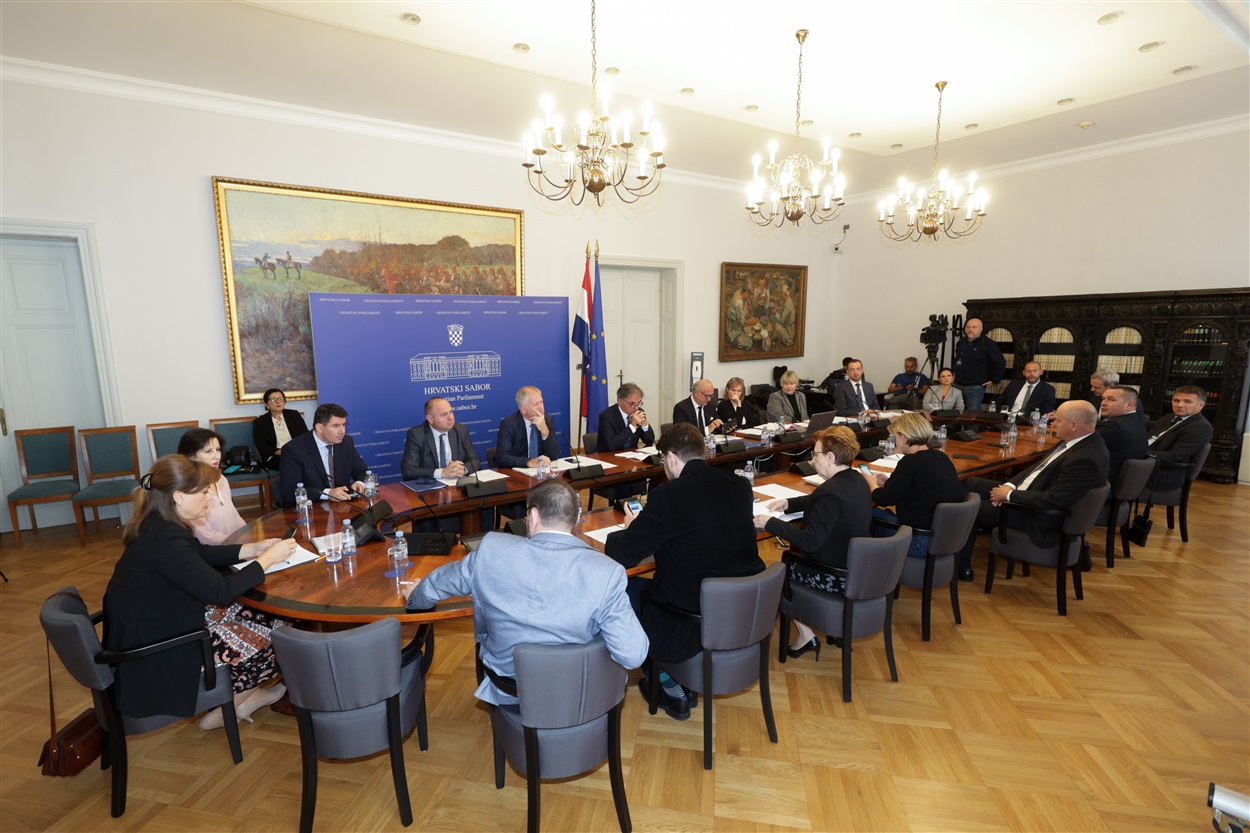
Zagreb - The parliament's Committee on the Constitution, Standing Orders and Political System on Wednesday supported by a majority vote a draft code of ethics for members of parliament and forwarded it to be discussed at a plenary session.
The code is brief, it has only 10 articles and defines the basic values MPs should uphold.
A part of the code is dedicated to the conduct of MPs during parliamentary debates, forbidding them, for example, to make reference to other deputies' physical, psychological and other characteristics in order to disparage them, to say lies and make insinuations about the private life of other deputies and members of their families, to insult other deputies and other persons, to quarrel, blackmail, incite to violence, intolerance and discrimination, or to insult foreign states and international organisations as well as their representatives.
MPs are also forbidden to call for violence and noncompliance with positive regulations and to spread ethnic, religious or racial hatred or incite the violation of human rights and gender inequality. They are not allowed to act contrary to the Constitution, the Standing Orders and other regulations or to prevent the free expression of will of other deputies, and spread ill-intentioned or unfounded accusations against other deputies and other persons.
They are obliged to treat media representatives with respect and enable them to do their job professionally.
The Committee on the Constitution, Standing Orders and Political System would be in charge of monitoring compliance with the code.
MP: It's allowed to steal but it's not allowed to talk about stealing
Social Democratic Party leader Peđa Grbin believes the code will remain a dead letter because no fines for noncompliance are envisaged. He also wonders how it will be possible to determine if some accusations are unfounded.
"If we will be able to say that someone is a thief or corrupt only if they have a final verdict to prove it, the parliament will lose part of its purpose," he said.
Milorad Pupovac (SDSS) said that he has doubts about sanctions, namely was not certain if breaches of ethical norms can be punished as if they are legal norms.
Dalija Orešković (Centre) said that sanctions do not have to be fines but that that does not mean that there should be no sanctions.
Independent Karolina Vidović Krišto said that it is absurd to adopt a code on the basis of standing orders that are constantly breached and were adopted based on the constitution that is also breached. She claims that this is an attempt by the government to ban people from saying the truth based on the principle "Stealing is allowed but to talk about stealing is not."
The Committee also decided to hold another round of talks with parliamentary caucuses regarding draft amendments to the constitution in the part that concerns referenda and the related changes to the Constitutional Law on the Constitutional Court.
Branko Bačić of the ruling HDZ party said that they were ready to talk about the total number of signatures required for a referendum, about the quorum when decisions are made on amendments to the constitution or an organic law, on issues that may not be decided by a referendum, as well as on the pre-referendum decision-making by the Constitutional Court on the constitutionality of the referendum question.
"It is in the interest of us all to regulate that matter, it requires the support of 101 MPs so the proposal must also include the opposition's proposals," Bačić said.
Arsen Bauk of the SDP proposed that the number of signatures required for a referendum should depend on the number of voters who go to the polls for parliamentary elections, as well as that in cases on which it has already decided, the Constitutional Court should make a new decision with the votes of 10 of its judges.
Božo Petrov (Bridge) reiterated his party's view that attempts are being made to "kill" any attempt at referendum.
Vidović Krišto finds the proposal to give the Constitutional Court greater powers contentious, claiming the court has been compromised.
"A lot of issues have been raised requiring further dialogue so I will allow more time for consultations by the caucuses," Committee chair Dražen Bošnjaković concluded.
Once public consultation on draft amendments to the Constitution is completed, the second step is determining draft proposals to be forwarded for discussion at a plenary, and the third step is the amendment of the Constitution, he explained.